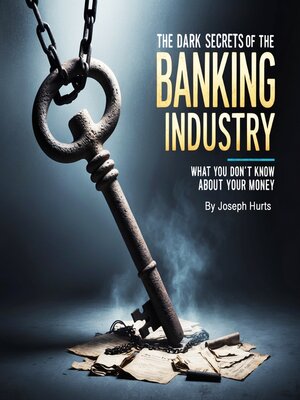The Dark Secrets of the Banking Industry
audiobook (Unabridged) ∣ What You Don't Know about Your Money
By Joseph Hurts

Sign up to save your library
With an OverDrive account, you can save your favorite libraries for at-a-glance information about availability. Find out more about OverDrive accounts.
Find this title in Libby, the library reading app by OverDrive.



Search for a digital library with this title
Title found at these libraries:
| Library Name | Distance |
|---|---|
| Loading... |
This audiobook is narrated by a digital voice.
Most people believe that banks simply store depositors' money and lend it out to borrowers, acting as intermediaries between savers and those who need capital. This fundamental misunderstanding of how banking actually works conceals one of the most powerful and potentially destabilizing systems in the modern economy. In reality, banks create money out of nothing through the lending process, a practice that gives them enormous power over economic activity while exposing the entire financial system to risks that most depositors and borrowers never realize they are bearing.
When a bank approves a loan, it does not transfer existing money from one account to another. Instead, it literally creates new money by making accounting entries that simultaneously create both the loan asset on the bank's books and the deposit liability that appears in the borrower's account. This process of money creation through lending means that the vast majority of money in circulation was created by private banks rather than government treasuries or central banks. The implications of this system are profound and largely hidden from public understanding.
Fractional reserve banking allows banks to lend out far more money than they actually hold in reserves, creating a multiplication effect that can dramatically expand the money supply during economic expansions and contract it during downturns. Banks are typically required to hold only a small percentage of their deposits as reserves, meaning they can create loans worth many times their actual capital base. This system works smoothly when confidence remains high, but it becomes extremely fragile when depositors lose faith and attempt to withdraw their money simultaneously.







